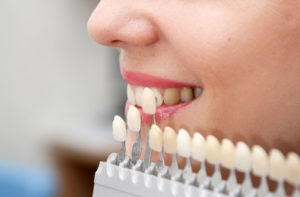What is a dental crown?

A dental crown is a covering, or cap, placed over a tooth to protect it from breaking, to make it structurally sound, and to improve its aesthetic look.
A crown may be necessary if:
- A filling in the tooth is breaking down.
- The margins on a filling are inappropriate.
- A filling is not sufficiently keeping the tooth separated from the others.
- There are significantly large fillings.
- A tooth is cracked.
What are the benefits?
Not only can dental crowns improve the aesthetics of your teeth, but they also have other added benefits, including:
- Maintaining the cleanliness of a tooth.
- Lowering the risk of the tooth breaking.
- Prolonging the life of the tooth.
- Improving the look of the tooth, hiding any discoloration or other visible damage.
What are the drawbacks?
There are also drawbacks to receiving dental crowns:
- The cost of the procedure.
- Uncomfortable sensitivity to hot and cold following the procedure.
- Crowns can chip or break.
- The dental cement used can wash away.
Visit News Medical for more information about the advantages and disadvantages.
What are the alternatives?
When a dental crown is indicated for a tooth, it is the only long-lasting repair. However, some other temporary alternatives to dental crowns are:
- Tooth inlay/onlay
- Fillings
- Veneers
- Dental bonding
- Tooth whitening
Web Dental has provided more information about alternatives.
What is the procedure for dental crowns?

The procedure for a dental crown is summarized in the following steps:
- Anesthetize the tooth.
- Prep the area around the tooth to provide the room necessary for the laboratory to make the crown.
- Take an impression of the prepped tooth, ensuring a crown with appropriate thickness is created and that the crown will be strong and allow for a proper and natural bite.
- Replace old filling material and any existing decay in the tooth with the new filling material.
What is the cost of a dental crown?
A dental crown can cost from $5oo to $3,000 per tooth.
Will insurance cover it?
Typically, insurance companies at least partially cover the procedure and only require a co-pay. Insurance coverage on a dental crown does vary among insurance companies.
